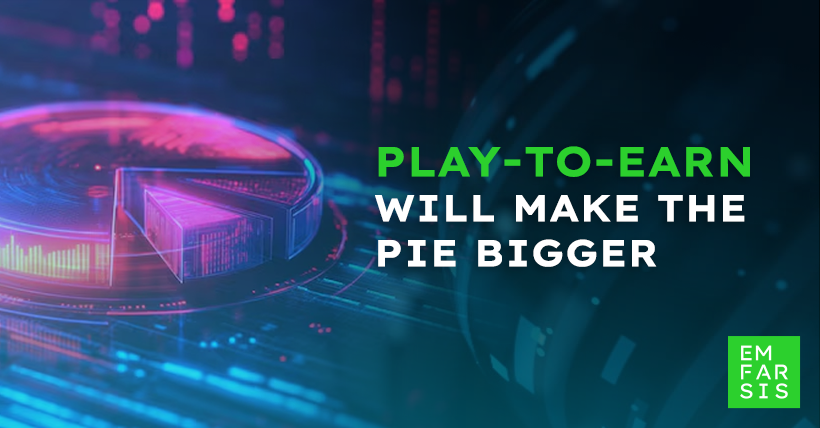This is a summary of the op-ed ”Play-to-Earn Will Make the Pie Bigger” by Leah Callon-Butler, published on CoinDesk on February 27, 2024.
One could think of Bitcoin as the original play-to-earn game where players used computer power to solve complex puzzles and mine for coins. Smart contracts created opportunities to build more features into financial rails. Even then, Web3 struggled for years to onboard new users, until games like Axie Infinity opened the door to millions of noobs.
However, members of the traditional gaming community were less enthused. Industry veterans were outraged by the idea of mixing finances with fun. Emfarsis Director Leah Callon-Butler believes that this sentiment needs to change, as she stated how the video game industry grew by expanding the definition of games in her CoinDesk op-ed “Play-to-Earn Will Make the Pie Bigger.”
In the article, Leah outlines how deeply rooted this villainism is in gaming culture. In the modern age, the stigma against profit-first players came from the Chinese gold farmers in World of Warcraft, and Venezuelans in Old School Runescape. Gamers attempted to exploit the in-game economy and cash out their virtual gold through shady third-party real-money trading platforms. These players were derisively given the titles of grinders, extractors, or speculators, and the label has stuck for players who jump into games looking to profit at all costs.
“The next challenge for Web3 builders is to make the virtual economy underpinning their games as healthy and stable as Switzerland’s, so that the P2E-inclined can be welcomed back with open arms rather than being excluded.”
Even in Web3, where you would think earning was widely accepted, these types of players got a bad rap for driving the rise and fall of early P2E games. In Leah’s view, framing all play-to-earn players as extractors is reductive and overlooks the resourcefulness and ingenuity that make playing these games such a profitable enterprise for them. For Leah, this behavior plays an important role in a robust virtual economy as these players perform useful but time-consuming tasks in the game. Time-poor players are happy to pay for the luxury of not having to do those tasks themselves.
To date, no one has been able to fully legitimize this open market exchange and ensure that it does not throw the economy off balance. Yet, Web3 has the opportunity to prove that in-game economies don’t need to be centralized to stabilize and thrive. Leah concludes that Web3 gaming can improve when it delivers P2E-driven tokenomics that are core to gameplay and serve an essential purpose in the game’s virtual economy.
Read the full article here: “Play-to-Earn Will Make the Pie Bigger” by Leah Callon-Butler. Published February 27, 2024 on CoinDesk.

